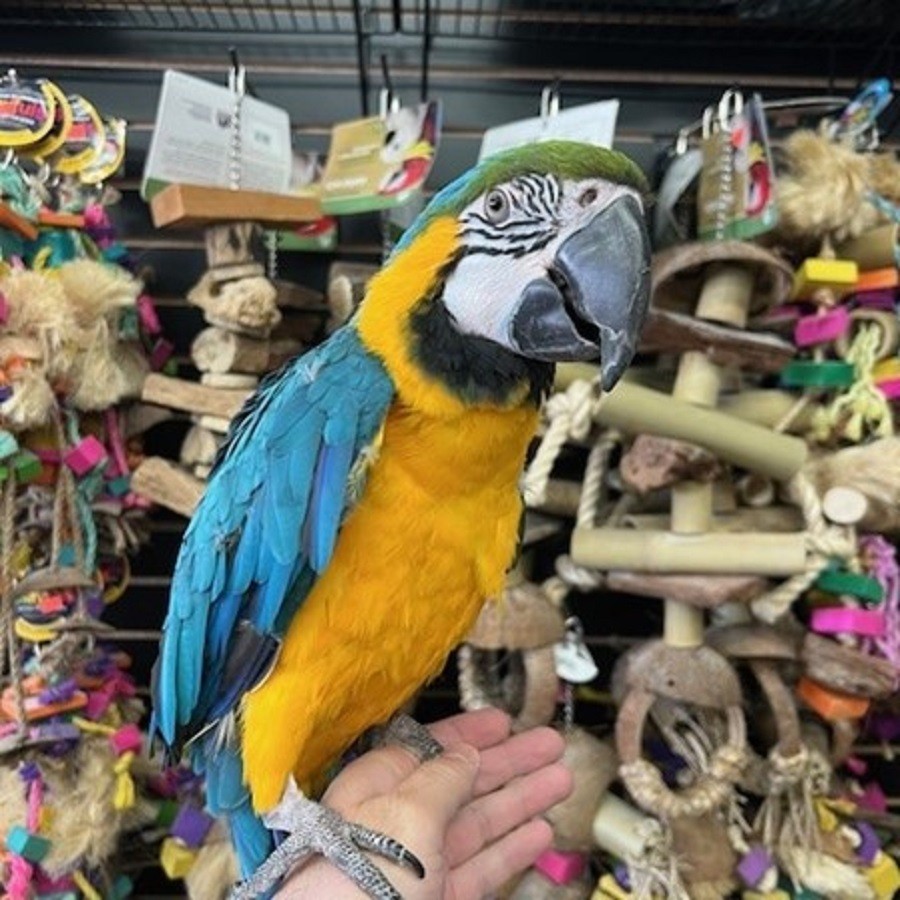Beyond the Rainbow: An Honest Guide to Macaw Companionship
The dream of sharing your life with a macaw is often painted in the brilliant colours of its feathers. Many people begin their journey by searching for a stunning Blue and Gold Macaw for sale or envisioning the fiery personality of a Scarlet Macaw for sale. These birds, along with other magnificent species like the Green-winged and hybrid Catalina Macaws, represent the pinnacle of avian beauty and intelligence. But before that dream becomes a reality, a period of honest self-reflection is essential. Welcoming a macaw is less like buying a pet and more like adopting a toddler with feathers, powerful pliers for a beak, and a 70-year lifespan. This guide is designed to help you look beyond the rainbow plumage and understand the profound commitment required to provide a truly fulfilling life for these incredible creatures.
Can You Speak "Macaw"? Understanding Their Intelligence and Communication
The first step in responsible ownership is appreciating that macaws are not just decorative objects; they are sentient beings with complex minds. Their intelligence is frequently compared to that of a 3-4 year old human child. They can solve multi-step problems, remember faces and events for years, and experience a wide range of emotions, including joy, jealousy, anger, and affection.
This intelligence manifests in their famous ability to mimic human speech. But their communication goes far deeper than just words. A prospective owner must learn to read their body language:
-
Eye Pinning: The rapid dilation and contraction of their pupils can signal excitement, aggression, or intense curiosity. Context is everything.
-
Crest Feathers: A raised crest can indicate excitement or alarm.
-
Beak Clicking: This can be a sign of contentment or a warning to back off.
-
Blushing: The bare patches on their faces can flush red when they are excited or agitated.
Understanding these signals is crucial for building trust and avoiding misunderstandings that can lead to bites. Their intelligence demands daily engagement through training, puzzles, and social interaction.
The Commitment of Time: Are Your Next 50+ Years Available?
This is not an exaggeration; it is a biological fact. Macaws have incredibly long lifespans, routinely reaching 50, 60, and even 80 years of age. The bird you bring home today will likely be with you through career changes, moves, marriages, and the growth of your family. They are a true legacy pet.
This longevity requires a serious evaluation of your daily and long-term schedule. Macaws are flock animals and cannot be left alone in a cage for 8-10 hours a day without suffering emotionally. They require a minimum of 3-4 hours of direct, out-of-cage social time every single day. This includes shared meals (of bird-safe foods), playtime, training, and simply being in the same room with their human "flock." If your lifestyle involves frequent long hours at work or constant travel, a macaw is not a suitable companion.






















